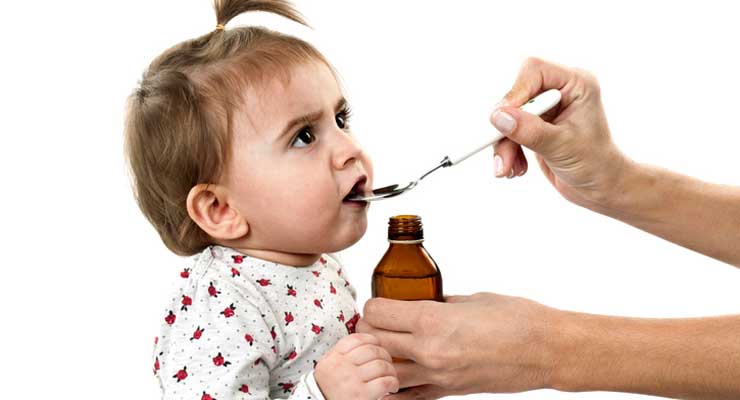Infant Bronchitis is a condition marked by inflammation of the bronchial tubes, or bronchi, which are passageways that carry air to the lungs. In infants, bronchitis is typically acute, extremely common, and often caused by other types of respiratory infections.
In most cases, the infections that lead to bronchitis are viral and cannot be treated with antibiotics. However, there are several treatment methods that may lessen the symptoms of bronchitis as well as shorten the duration of this illness.
Signs and Symptoms of Infant Bronchitis
Due to their small lungs and air passages, bronchitis can be especially dangerous for infants and young children; therefore recognizing the symptoms of this condition is essential to proper treatment and care. Symptoms range in severity from mild, infrequent coughing to severe coughing, wheezing, and breathlessness.
To determine whether or not infants may or may not have bronchitis, parents can look for the following signs and symptoms:
- Cough that is either mild, moderate or severe. Cough can also be dry or wet, as well as persistent or periodic. Further, coughing associated with bronchitis is typically worse at night.
- Wheezing or labored breathing.
- Coughing, sneezing, or vomiting that produces mucus. Mucus may be clear, gray, white, yellowish or greenish in color.
- Low-grade fever that is often accompanied by chills or profuse sweating.
Diagnostic Tests for Infant Bronchitis
If any of these symptoms are present, a visit to the pediatrician or, in some cases, the emergency room is in order. Once under the care of a medical professional, your child may undergo diagnostic tests like the following:
Chest X-Ray – In many cases, chest x-rays are essential in ruling out conditions like pertussis, RSV, or pneumonia.
Mucus Cultures – Like x-rays, cultures are performed mainly to rule out bacterial infections that can be cured through the use of antibiotics.
Lung Function Test – During a pulmonary function test, children may be asked to blow into a device called a spirometer. This test measures how much air the lungs can hold as well as how easily breath is expelled. This test is performed to rule out asthma as the cause of coughing, wheezing, and other symptoms.
Treating Your Child’s Infant Bronchitis
When it comes to treating bronchitis, relieving symptoms and providing comfort to your infant are the primary goals. Your child’s pediatrician may recommend treatments like the following:
Antibiotics – Since most cases of bronchitis are caused by viral infections, antibiotics are ineffective treatments. However, in cases caused by bacterial infections, antibiotics like penicillin and amoxicillin can provide quick relief from bronchitis symptoms.
Cough Syrup – While suppressing cough may relieve discomfort, it can actually lengthen healing time by preventing mucus from exiting the lungs. However, cough medicine can often be administered when coughing prevents restful sleep.
Breathing Treatments – When wheezing or labored breathing are present, breathing treatments may be administered to infants and young children through the use of a nebulizer. Liquid medications that promote better breathing are added to the nebulizer, which then produces a medicated mist that is inhaled by your child.
Steroids – In severe or chronic cases of bronchitis, steroidal medications can reduce swelling and inflammation, which makes it easier for your infant to breathe.
Air Humidifiers – At-home use of air humidifiers may reduce symptoms of bronchitis, as well as make it easier for your child to expel mucus from the lungs.
Preventing Infant Bronchitis
There are several ways you can prevent your child from developing bronchitis and other respiratory conditions. A few prevention methods include the following:
1. Protect your baby from secondhand smoke. Cigarette smoke irritates the lungs and bronchial tubes, which can cause bronchitis as well as exacerbate symptoms in existing cases.
2. Make sure all of your child’s vaccinations are current. Flu vaccinations, especially, are important when it comes to preventing bronchitis.
3. Wash your hands. Before holding, touching or feeding your baby, make sure you wash your hands in order to reduce the spread of viruses and bacteria.





